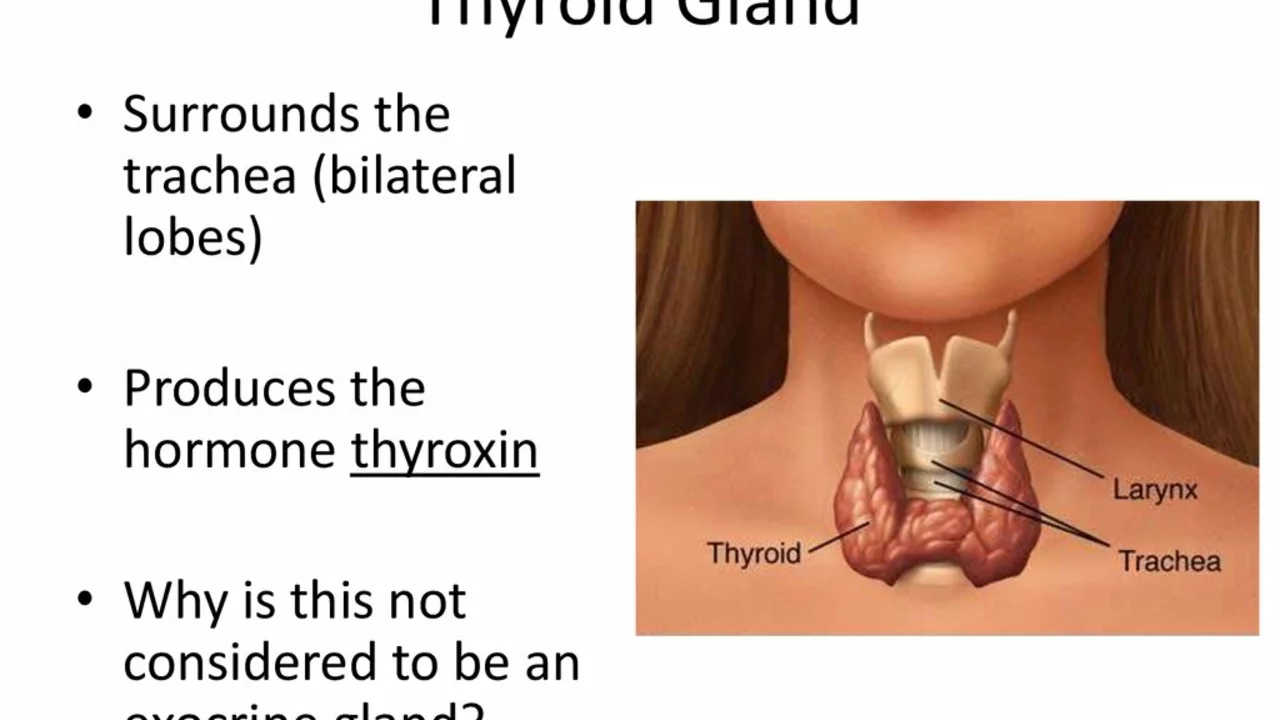Amiodarone and Thyroid Function — August 2023 Archive
This month on Medzino we focused on one clear topic: how amiodarone can change your thyroid. If you or someone you care for takes this antiarrhythmic, the post explains what to expect, what signs to watch, and how doctors check and manage thyroid changes. Below is a short, practical summary of the key points from our August 2023 post.
Why amiodarone affects the thyroid
Amiodarone contains a lot of iodine and it sits in the body for weeks to months. That combination can push the thyroid toward two opposite problems: underactive (hypothyroidism) or overactive (hyperthyroidism). The drug can interfere with hormone production, and because it stays around a long time, changes might appear weeks after you start or even after you stop the medicine.
Don’t panic if you read that — many people take amiodarone safely. The important part is knowing what to look for and staying on top of routine tests so problems are caught early.
What to watch for and what to tell your doctor
Signs of an underactive thyroid: feeling tired, gaining weight without eating more, feeling cold, dry skin, constipation, or slowing heart rate. Signs of an overactive thyroid: fast or irregular heartbeat, feeling hot, losing weight without trying, shaking, anxiety, or trouble sleeping. If you notice these changes, mention them at your next visit — even small shifts matter.
Before starting amiodarone, doctors typically check thyroid blood tests to get a baseline. After that, common practice is to monitor thyroid-stimulating hormone (TSH) and sometimes free T4 every few months in the first year, then at regular intervals after that. If levels move outside the normal range, your doctor will decide whether to treat the thyroid, adjust the amiodarone dose, or both.
Treatments differ depending on the problem. Hypothyroidism is usually treated with levothyroxine (a thyroid hormone pill). Hyperthyroidism may need anti-thyroid drugs, steroids in some cases, or other measures. Stopping amiodarone isn’t a quick fix, because it lingers in the body — decisions about stopping usually weigh heart rhythm needs against thyroid risks.
Emergency signs that need immediate care include chest pain, fainting, or sudden, severe shortness of breath. Those could signal a serious heart or thyroid-related issue and should not wait for a routine appointment.
Want details? Read the full August 2023 article on Medzino for plain-language explanations and examples of how clinicians balance heart and thyroid care. If you take amiodarone, keep a list of new symptoms, bring it to visits, and never stop the drug without talking to your prescribing clinician.
Short, practical takeaway: know the symptoms, get baseline and regular thyroid tests, and report changes early. That simple plan helps most people stay safe while using amiodarone.

Amiodarone and Thyroid Function: What You Need to Know
Alright folks, let's dive into the wild world of Amiodarone and Thyroid Function! So, this drug, Amiodarone - it's a bit like that unexpected guest who not only crashes your party but also messes with your home's heating system, in this case, your thyroid function. It's an effective treatment for serious heart rhythm problems, but it could potentially lead to either an overactive or underactive thyroid. So, you see, it's a bit of a 'naughty medicine' - working wonders for your heart but potentially stirring up a storm in your thyroid. But hey, don't worry, your doctor is like your personal weather forecaster, monitoring any changes and helping you navigate through it. It's a crazy ride, isn't it? Buckle up, because understanding your body is like exploring a fascinating, unpredictable universe.
